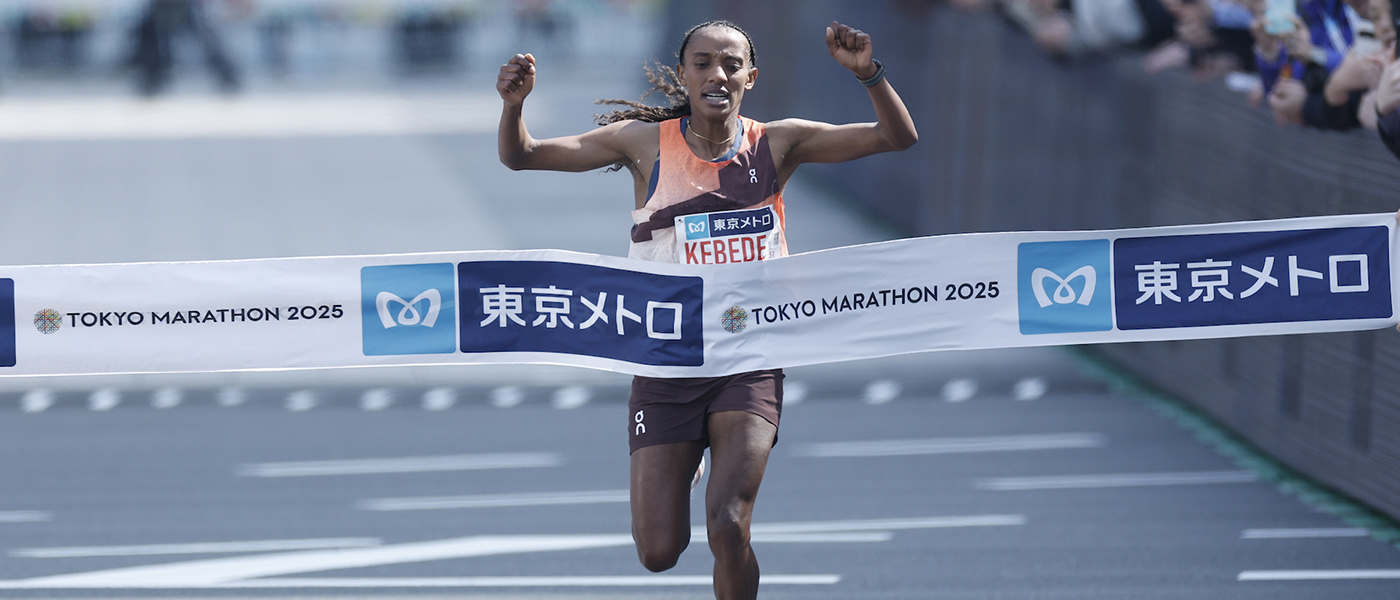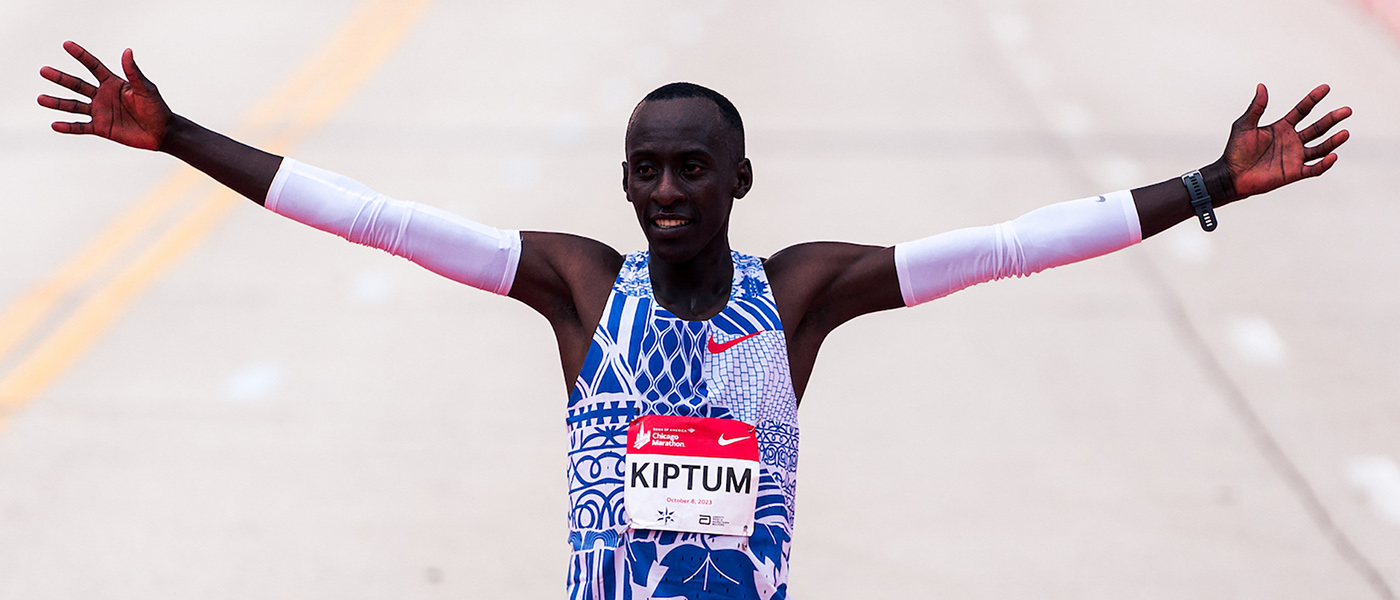
The countdown is under way to discover who will become the new Olympic marathon champions.
It’s a timely reminder that these will also count as scoring races in Series XIII of the Abbott World Marathon Majors.
This interrupted series began way back in 2019 at the Bank of America Chicago Marathon, and was due to end back in the Windy City 12 months later. The COVID-19 pandemic, of course, had other ideas. The series will now conclude at the 2021 TCS New York City Marathon.
All this means the Tokyo Olympics will mark the start of a jam-packed few months, with the Games marathons taking place on August 7 and 8, then all six Majors taking place in a six-week window between September 26 and November 7.
This summer, though, all eyes will be on Tokyo to discover who will take the Olympic gold medal along with their 25 points for the AbbottWMM leaderboard.
Here are 10 things you need to know about the Olympic marathon
1. Where is it?
Well, the Tokyo Olympic Marathon is not actually in Tokyo. Due to concerns over temperature, the event is being held in Sapporo, 500 miles away from the capital city. Temperatures there are now ironically forecast to be higher than in Tokyo.

2. When are the races?
The women’s race will take place on August 7 and the men’s race on August 8. The women's race start has been moved forward one hour to 6.00am local time to negate the rising temperatures. The men's start is still planned for 7:00am local time.
3. What’s the course like?
After the start in Odori Park, runners will make one 20km lap around the city centre before completing two 10km laps – essentially of the northern half of the large lap – and then return to Odori Park and the finish line. Take a look at this video for a detailed guide to the route.
4. Who are the key contenders?
The favorites must surely be the Kenyan pair of Eliud Kipchoge and Brigid Kosgei. Both will arrive in Japan as world record holders and reigning AbbottWMM series champions.
Kipchoge is also the defending Olympic champion following his triumph in Rio 2016, and he stunned the world in 2019 when he broke the two-hour barrier in Vienna in a specially-organised event (his official world record still remains the 2:01:39 set at the BMW Berlin Marathon in 2018).
But he has not had it all his own way since that famous day in the Austrian capital.
Kipchoge was well-beaten in the elite-only 2020 Virgin Money London Marathon, finishing eighth. He recovered some form in the one-off NN Mission Marathon staged in the Netherlands earlier this year, winning in 2:04:30.
Kosgei also pitched up in London in 2020 and stormed to victory by a margin of more than three minutes on the looped course. She has not featured in a 26.2-mile race since that rainy October day, and was fifth in the Istanbul Half Marathon in April, where her fellow Olympic marathon teammate Ruth Chepngetich smashed the half-marathon world record.
Kosgei later cited an injury she was nursing during that race, but has since reported a clean bill of health during preparations at her Kapsait base. View the full start lists here.
Here's a reminder of how Kipchoge became champion in 2016:
5. Who are the other male contenders?
Kipchoge’s teammates in Tokyo will be Amos Kipruto and Lawrence Cherono.
Cherono has demonstrated his racing strength twice in Majors, outlasting Ethiopia’s Lelisa Desisa in a sprint finish at the 2019 Boston Marathon, and deploying the same powerful kick in Chicago later that year.
Kipruto, the bronze medallist in the 2019 world championships, finished second behind Kipchoge when he broke the world record in Berlin and has been touted in Kenya as the successor to Kipchoge’s crown.
Kenya’s traditional East African rivals Ethiopia will certainly have plenty to say in the argument for the medals. Shura Kitata, the man who beat Kipchoge in London last year, is joined by Desisa, the reigning world champion and 2018 TCS New York City Marathon winner.
The great Kenenisa Bekele will not be competing, with the third slot on the Ethiopian team filled by Sisay Lemma, who has claimed third place in his last three Majors outings, Berlin in 2019 and Tokyo and London last year.
6. And in the women’s race?
Ruth Chepngetich’s 2019 world championship win perhaps gives her an edge in this contest where the pacemakers who have lead Kosgei to her record-breaking runs will be absent.
It’s also noteable that the 64:02 run by Chepngetich in Turkey is faster than the 64:28 run by Kosgei at the Great North Run which, at the time, was the fastest ever half marathon set on the road but was set on a course ineligible for world records.
Alongside the marathon world-record holder and Chepngetich, Peres Jepchirchir will also line up in the Kenyan women’s team. The 27-year-old claimed her second half-marathon world crown in 2020 in Poland and will have the racing smarts to challenge for the medals in Sapporo.
7. Anyone else we should keep an eye on in the men's race?
Uganda’s Stephen Kiprotich who won gold in 2012 in London will lead his country’s Olympic team in Japan, and a strong challenge may come from the likes of the USA’s Galen Rupp, the bronze medallist in Rio. Rupp followed that 2016 run with victory at the Bank of America Chicago Marathon in 2017 and his win at the US Olympic trials indicated that he has put recent injury woes behind him.
8. Who else might feature in the women's race?
Perhaps it would not be a surprise to see Birhane Dibaba earn a medal. She is no stranger to Japanese marathon podiums, with two victories and one second place in Tokyo. The winner of the elite-only 2020 Tokyo Marathon, Lonah Chemtai-Salpeter, should also be seen as a live challenger. The adopted Israeli athlete clocked a new course record in Tokyo last March.
9. Could we see anyone from the host nation on the podium?
The host nation’s hopes rest with Suguru Osako, Shogo Nakamura and Yuma Hattori on the men’s side and Mao Ichiyama, Honami Maeda and Ayuko Suzuki for the women. Marathon running in Japan has been steadily improving in recent years, with the national record falling on multiple occasions. On a day that’s all about racing to win and when fast times are secondary, you can never say never.
10. How can I watch the race?
Check to see who your Olympic broadcaster in your own country for timings and channel information. This handy guide from the clever people at Thebridge.in should help.
Other news

Episode 84: Hall In For Tokyo! - Marathon Talk meets Sara Hall as we preview the Tokyo Marathon

Kebede eyes history in Tokyo



